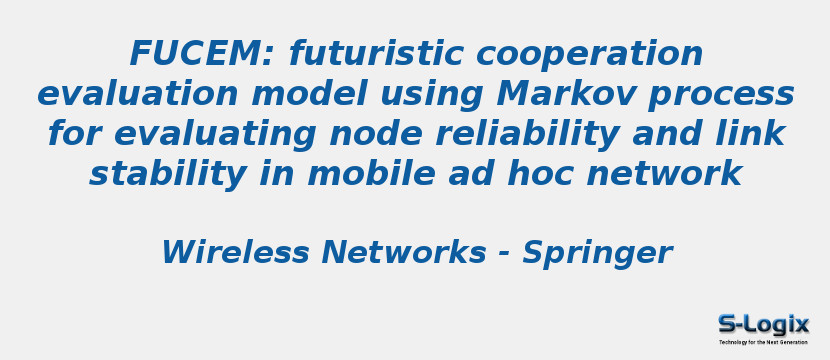Research Area: Mobile Ad Hoc Networks
The cooperation between the nodes is one of the potential factor for successful routing in mobile ad hoc networks. The non-cooperative behaviour of the node disturbs the routing as well as degrades network performances. The non-cooperativeness is due to the resource constraint characteristics of a mobile node. The battery energy is an important constraint of a node because it exhausts after some period. On the other side, the mobility of nodes also affects routing performances. Hence, this work concentrates on evaluating cooperation of a node by probing future node energy and mobility. This paper proposes a futuristic cooperation evaluation model (FUCEM) for evaluating node reliability and link stability to establish effective routing. The FUCEM model examines influencing factors of cooperation and state transition of nodes using Markov process. Node reliability and link stability manipulated through the Markov process. The Markov process helps in fixing the upper and lower bounds of the cooperation and calculates the cooperation factor. The NS2 simulator simulates the proposed work and evaluates performance results with different scenarios. The result indicates that the proposed FUCEM has 13–21% higher packet delivery ratio than other algorithms. The remaining energy of the nodes increases to 6–7% as compared with the existing algorithms in a higher mobility scenario. Further, it significantly improves the results of routing overhead and average end-to-end delay than the existing models.
Keywords:
Author(s) Name: Prasannavenkatesan Theerthagiri
Journal name: Wireless Networks
Conferrence name:
Publisher name: Springer
DOI: 10.1007/s11276-020-02326-y
Volume Information: volume 26, pages 4173–4188 (2020)
